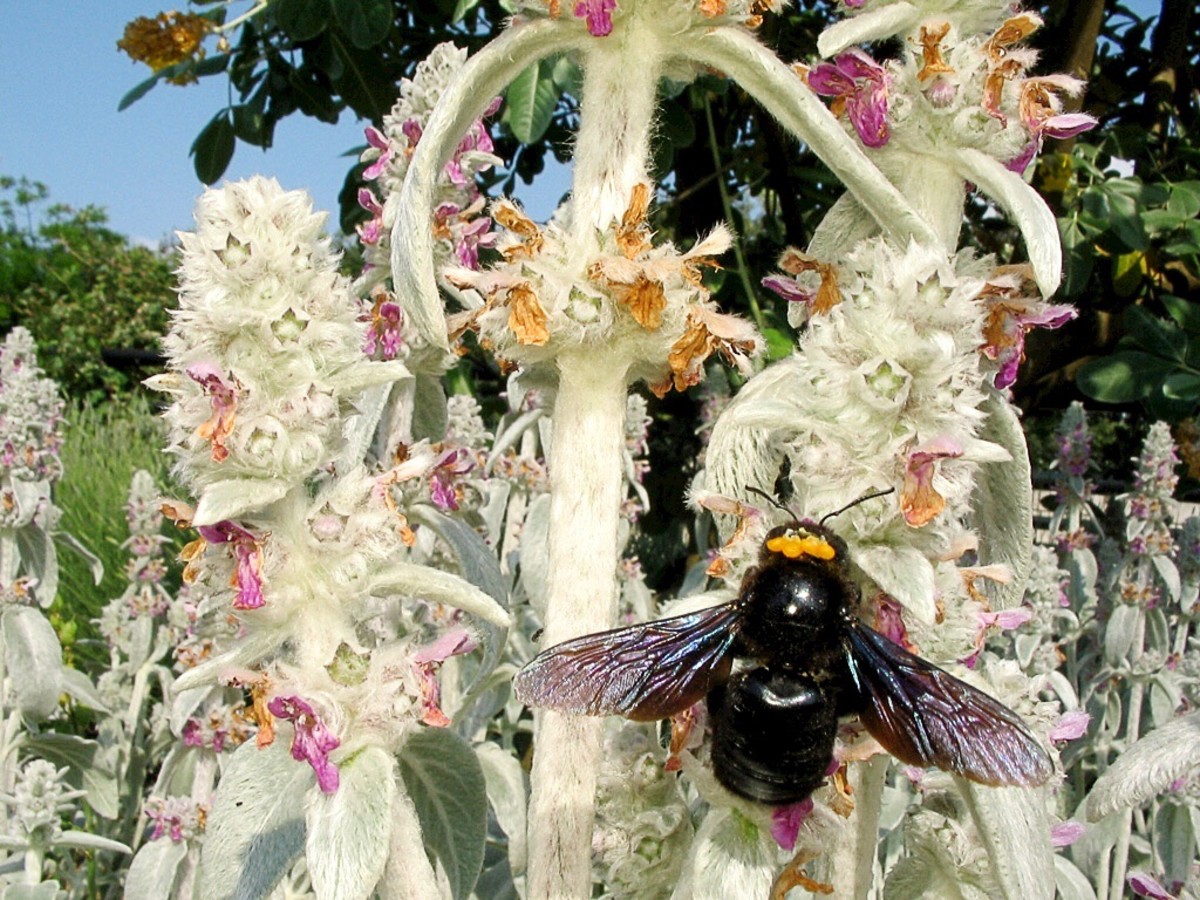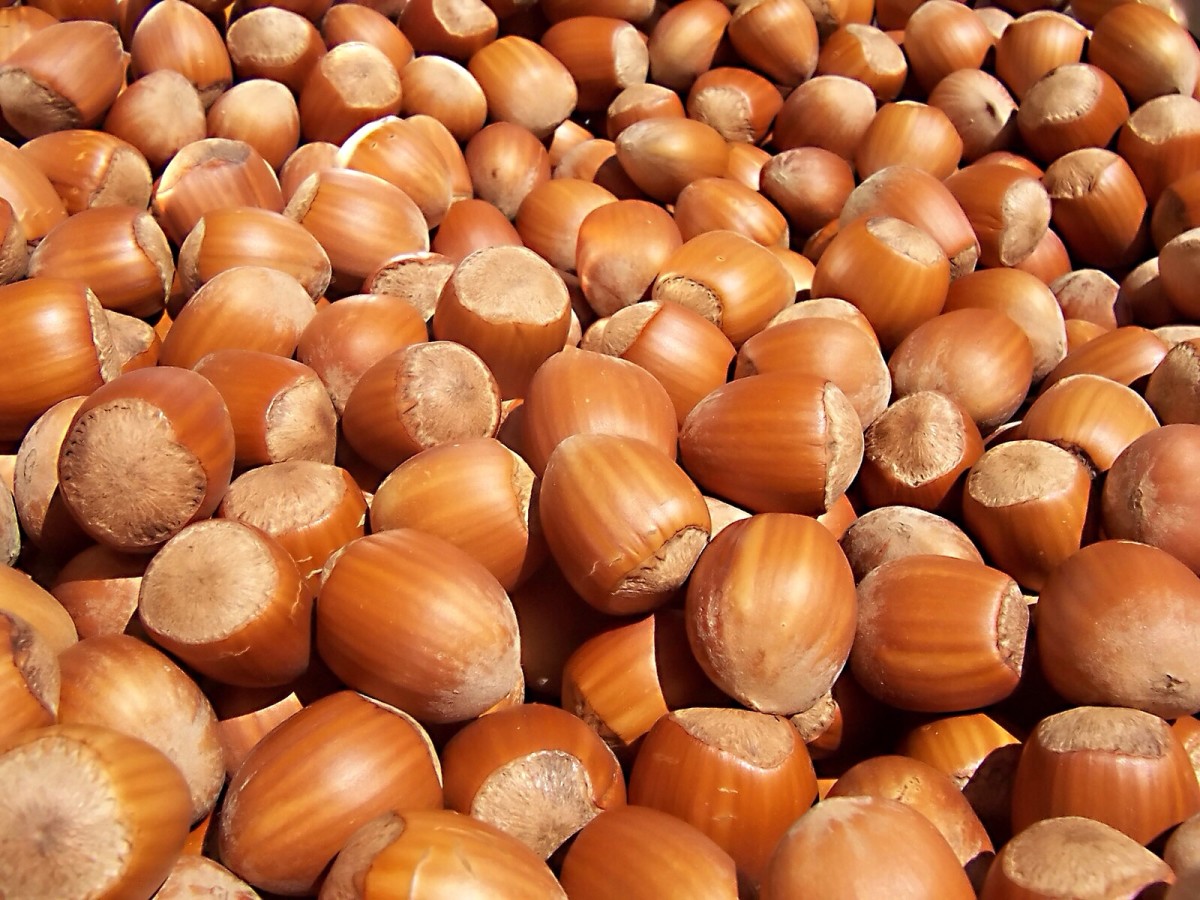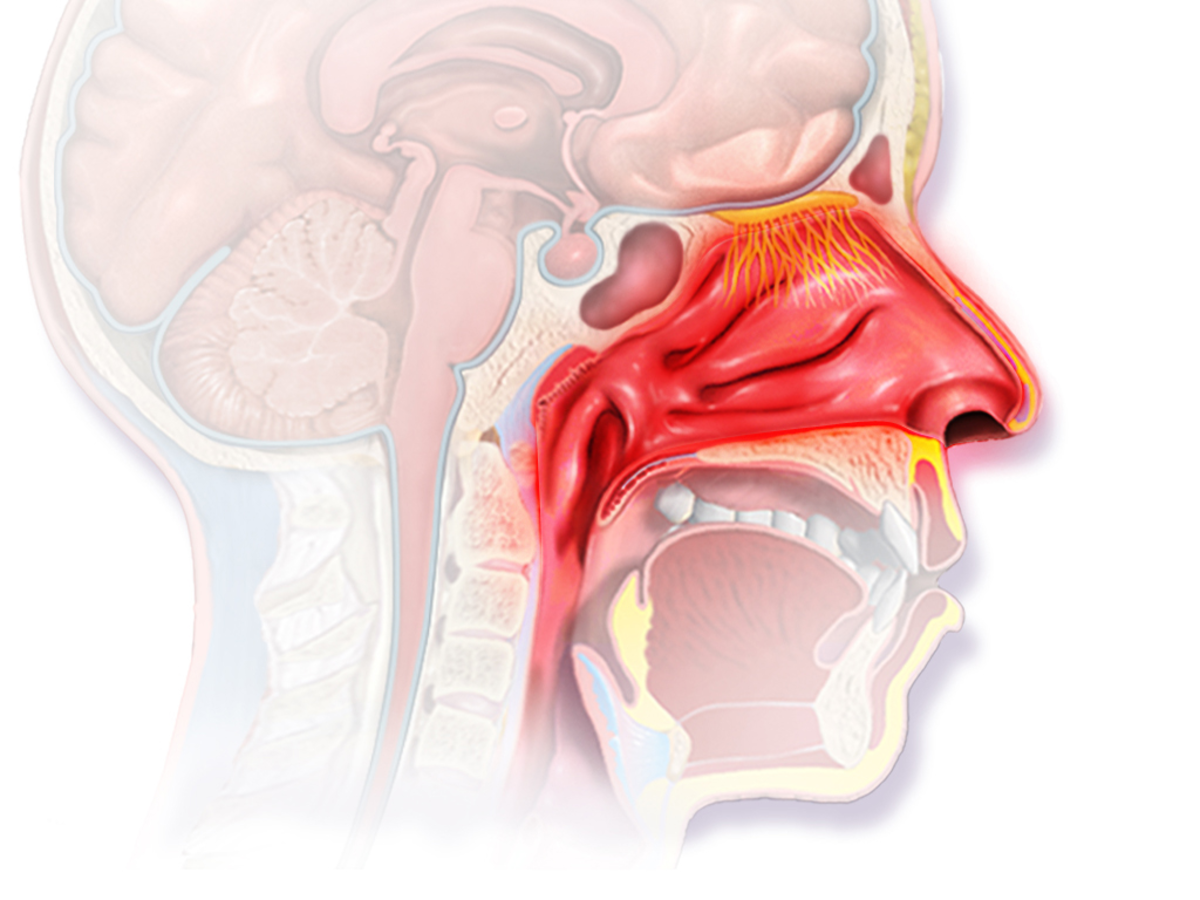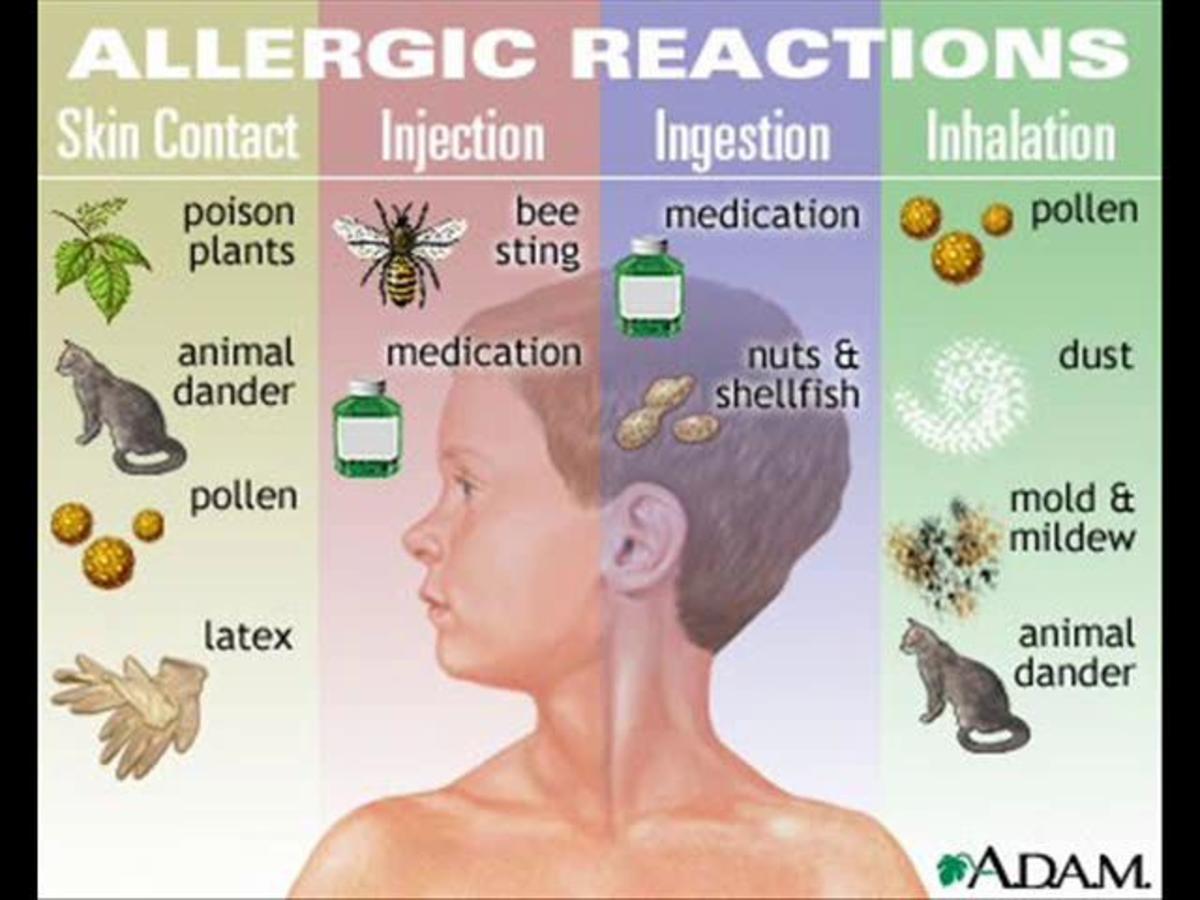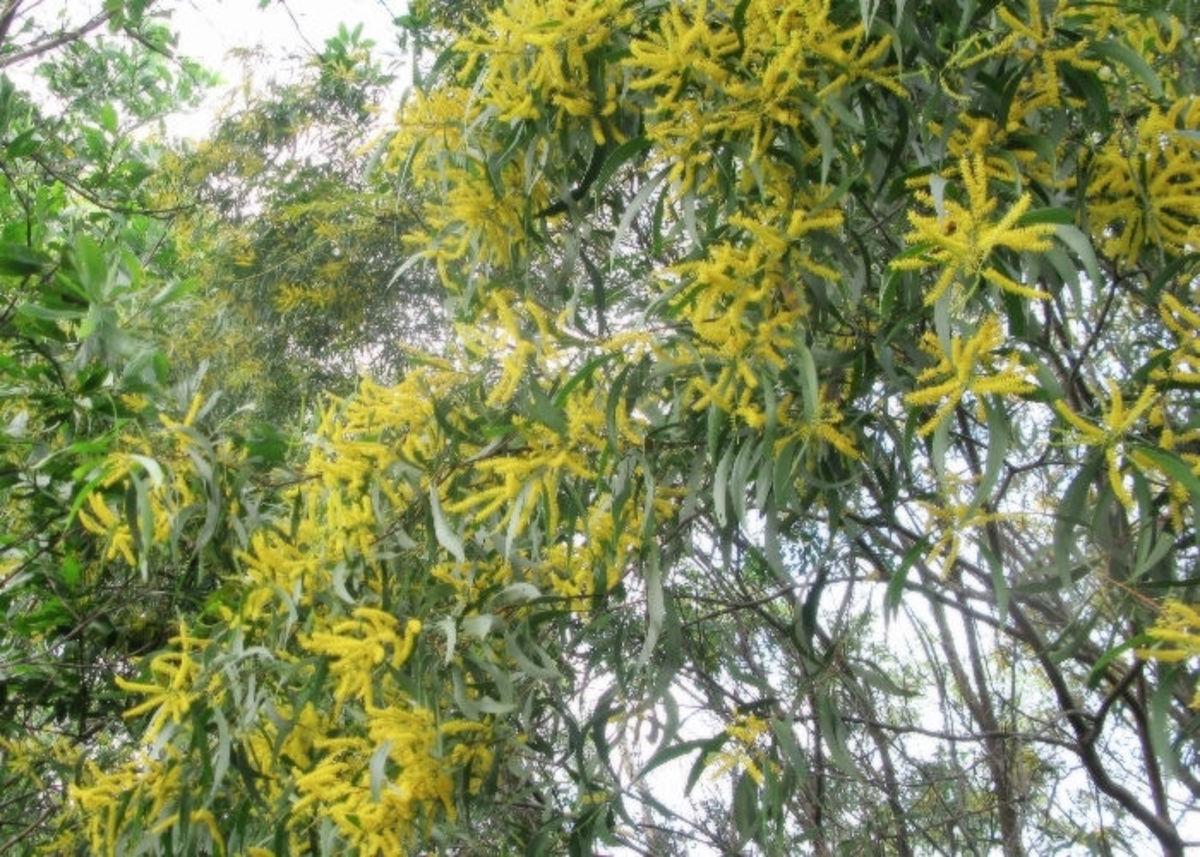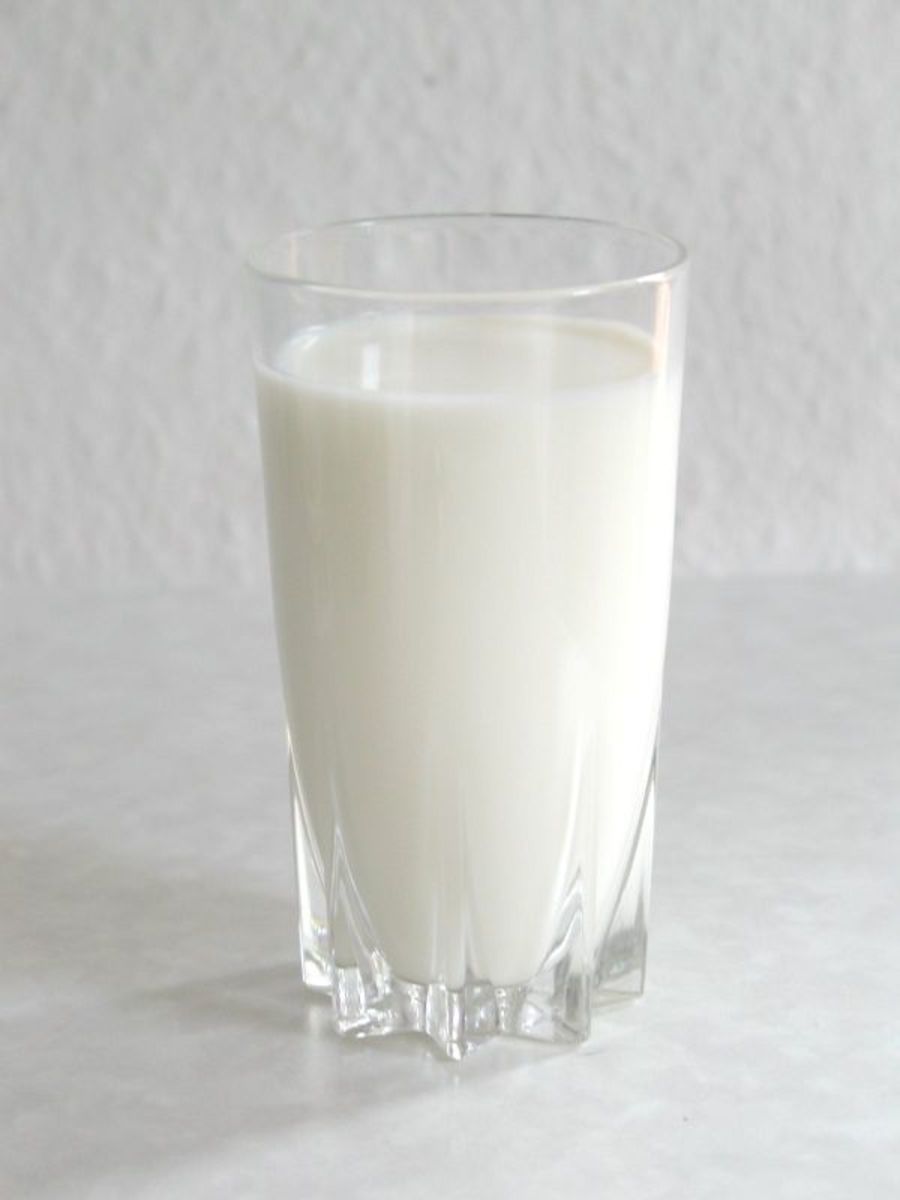A Complete Guide to Understanding Hay Fever
What is Hay Fever
Like most people I was diagnosed with Hay Fever from a very young age and have spent every spring (and summer and autumn most years) sniffing and sneezing, with itchy watery eyes. But in all honesty I didn't really know that much about it until I started looking for alternative remedies to help treat my symptoms. Although I found bits of information I couldn't find a site which gave me all the info I needed and helped me find other ways to control and treat the symptoms. So after a bit of research and some personal trials I have decided to write this Hub to help others understand Hay Fever and treat it, with something other than Anti-histamines. I am not a medical professional though so all the info I have collated has come from my own research, it is best to seek medical advise first if you believe you have hay fever.
So what is Hay Fever - (in the most basic sense)? Hay Fever can also be know as seasonal allergic rhinitis, pollinosis or nasal allergies. Hay Fever is specifically thought of as a seasonal allergy to particles of dust, pollen, mold spores or dander in the air, but it can affect some people throughout the year if they are subjected to these particles at other times. The majority of suffers only have trouble during the spring and fall months when there is a high pollen count, but some (like myself) have more of an issue with dust particles which they can constantly be surrounded by.
Hay Fever symptoms are caused by the immune system reacting to these particles, causing the cells of the nose and eyes (plus sometime the throat or sinuses in extreme cases) to release histamine and other chemicals which in turn causes the itchy and watery eyes and nose (and sometimes inflammation and itching in the throat).
In a bit more detail - Rhinitis comes in 2 different forms, although the symptoms are more or less the same.
- Seasonal allergic rhinitis - this is technically 'hay fever', which is the allergy to pollen particles at certain times of year, during pollination seasons.
- Perennial rhinitis - this is the allergy to dust, mold spores and pet dander and can affect people all year round
A Pollen Particle
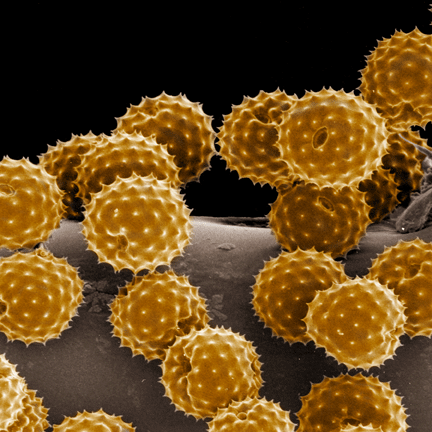
Pollen Explained
Pollen is the little tiny particles produced by plants, that is carried by insects and other animals to help more plants grow, but it can also be carried in the air in some cases.
Different plants produce pollen at different times of year, and different people are allergic to different types of pollen, hence the reason certain people suffer at different times to others. You can try to work out which pollen affects you by looking at when in the year you suffer the most. This is only a general guide.
- Grass Pollen - May to July (most common allergen)
- Tree Pollen - March to May
- Weed Pollens - July to September
Pollen Counts: Knowing the Pollen Count (often shown on the weather report) can help seasonal allergic rhinitis suffers to control their symptoms or know when they will need to medicate or take precautions against being exposed to high levels of pollen.
Pollen counts are taken by counting the number of pollen particles sucked into an air trap over a certain period of time, usually every 2 hours for 24 hours. These counts are then averaged to give a pollen count per cubic meter of air.
The forecast will usually look something like this:
- Low: less than 30 particles per cubic meter
- Moderate: 30-49 Particles per cubic meter
- High: 50-149 particles per cubic meter
- Very High: 150 plus particle per cubic meter
Hay Fever symptoms don't usually start until the pollen count is above 50. So knowing this information, if you are a seasonal allergic rhinitis sufferer, you can attempt to stay indoors or at least away from large open spaces of grass and trees if the count is high.
Symptoms of Hay Fever
There are a number of different symptoms listed below all of which can be associated with Hay Fever although different people may experience different combinations of the symptoms.
- Sneezing
- Itchy, blocked and runny rose
- Itchy, red, swollen eyes
- Watering eyes
- Itchy throat
- Headaches
- Sweating
- Loss of smell and taste
- Facial pain (causes by blocked sinuses)
If you suffer from Asthma or another breathing related illness, Hay Fever symptoms may also trigger these causing breathing problems, tight chest and triggering asthma attacks.
Natural Butterbur
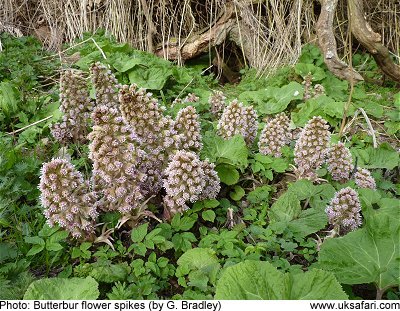
Remedies for Hay Fever
Most people can treat their allergy symptoms with general over the counter anti-histamines, like Claritin or Piriton, but for some these do not work well enough or at all. If you find this is the case then trying a stronger prescription anti-histamine or anti-histamine injections may help. I personally have a year round prescription of Citrizine, which does work for me but I am not really happy being on a long term drug of any form if there is a more natural way to relieve my symptoms.
So what is an anti-histamine? To answer this I am simply going to give you the dictionary definition as I don't think I could put it any differently. " Any drug or compound that neutralises the effects of histamine in the body, especially used in the treatment of allergies" - Dictionary.com
What most people don't realise is that there are many natural forms of anti-histamine out there, it is just a matter of finding one that specifically works for you. So below are a list of natural sources of anti-histamine. Trail and error of them is the only way to find which works best for you, but hopefully you will find something that helps.
Vitamins remedies: (adding foods which contain natural anti-histamines to your diet can great help reduce the chance of future allergic flare-ups)
- Vitamin C - This is believed to be one of the best natural anti-histamines, whether taken in a supplement form or by eating more food containing it. Here are just a few ideas to get you started - Citrus Fruit, Broccoli, Red Cabbage, Cauliflower and Strawberries
- Vitamin A - Our bodies can make Vitamin A from foods such as - Carrots, Tomatoes, Spinach and Green Leafy Vegetables. Some Vitamin A rich foods contain quercetin and pycnogenol which both help to inhibit the release of histamine. Foods such as citrus fruit, broccoli, onions, garlic and apples.
- Omega 3 Fatty Acid - Contains a strong anti-inflammatory which helps relieve symptoms caused by allergies. Often found in cold water fish such as Salmon, Walnuts, Canola-oil and Flaxseed oil.
Herbal remedies: (Herbs must be taken in moderations, as excessive use can be dangerous, it is advised you consult a herbalist or health care professional before taking them excessively)
- Stingy Nettle - Nettle Tea is one of things I have found that personally works for me. I simply drink a cup each morning and evening and it has reduced my symptoms drastically.
- Green Tea - Contains quercetin and catechin which have similar properties to anti-histamines.
- Chamomile - again as a tea
- Liquorice root
- Butterbur - Or a commercial extract called Petasol bitenoate complex
- Ginger
- Thyme
- Basil
- Garlic
- Ginko Biloba
- Fennel
- Spirulina
- Echinacea
Other Natural Remedies:
- Honey - If you suffer from seasonal allergic rhinitis, simply taking a small does of natural raw honey throughout the year will help you body build up a immunity to the pollen which stops your body over-reacting during the pollen season - taken on breakfast cereal, toast or in hot water is a good way to add it to your diet. Try and source a locally produced honey as this is a major key to this method working. You are technically helping your body build a tolerence to the specific pollen you are exposed to, by ingesting it as honey!
- Onions - contain high levels of quercetin which help stop the immune system over-reacting to the pollen, hold or dander particles. Many people have said adding large quantities of them to their diet has helped.
Ways to limit pollen exposure:
- Don't mow the lawn - this sounds like a cop out, but mowing the law sends particles up into the air, where the can more easily be inhaled
- Try not to be around large spaces of grass and trees during the early morning or in the evening.
- Don't leave windows open for too long in the morning or evening.
- Lining the nose with Vaseline or something similar - just a thin layer will literally stop the pollen particles reacting with the cells
Note to readers
If you have tried any other alternative remedies for allergies, or have another remedies you think help I would love to know. I will try to update this Hub as and when I try or find other things that help me.
Thank you for reading and I hope this helps a few of you

